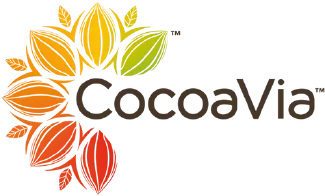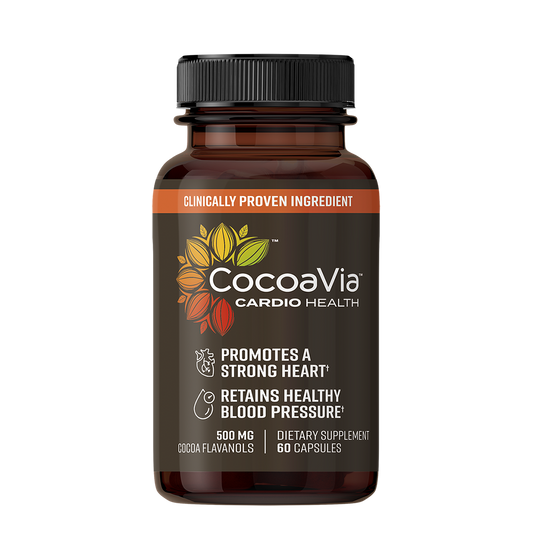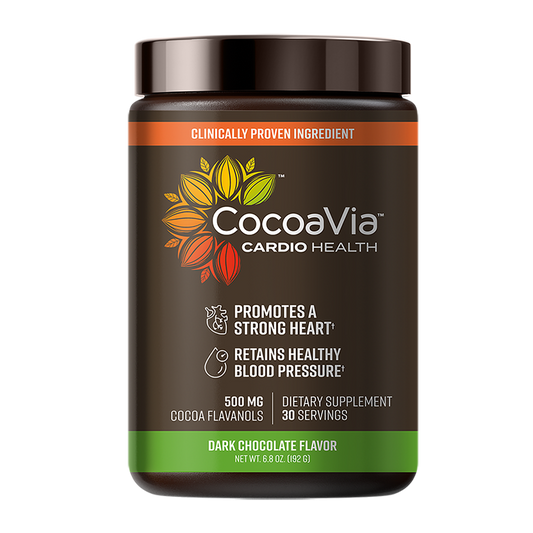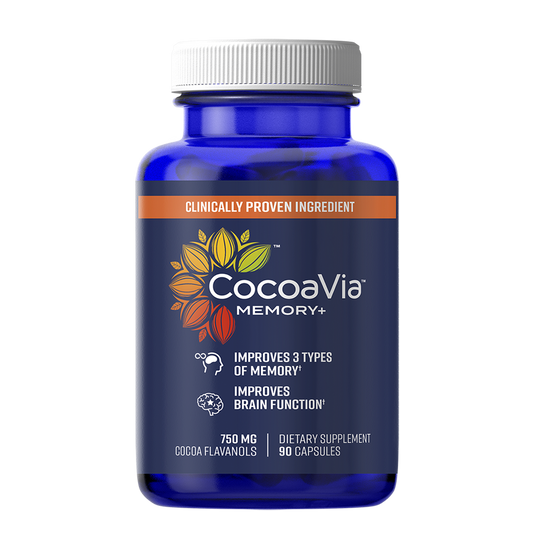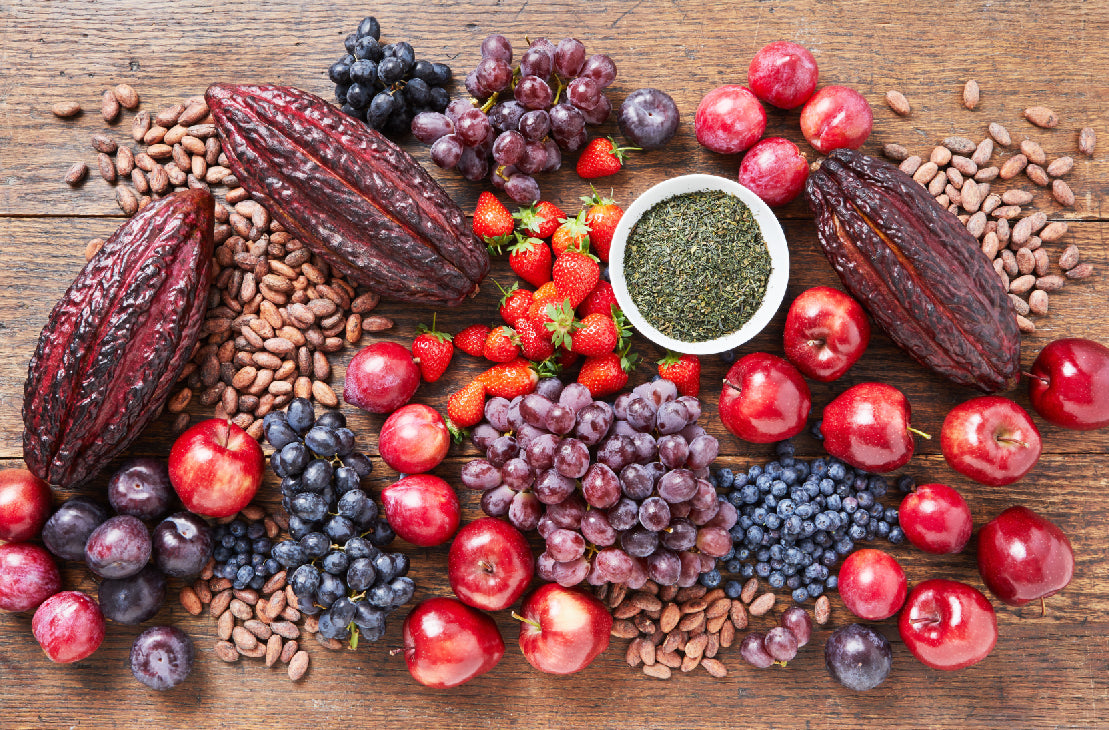
Are Cocoa Flavanols Antioxidant Rich?
-
Key Takeaways:
- Brain fog is a non-medical term sometimes used to describe a temporary cognitive decline—things like being forgetful, distracted, or taking longer than normal to remember things.
- Not getting enough sleep, not eating well, stress and dehydration can be contributors to feeling “foggy.”
- There’s a link between heart health and brain health, so it pays to do your best to keep them both in tip-top shape.
- Getting regular exercise can help you rest better at night, give your heart a workout, and sharpen your cognitive skills—a three-for-one deal!
- Taking steps to destress—like meditating and socializing—can help with brain health, too.
- Challenging your thinking by learning new things can trigger your brain to produce new neurons—literally.
- Cocoa flavanols have been proven to improve cognitive function and supplements like CocoaVia™ are a way to get 500 mg in one serving!
-
Antioxidant is a general term for any compound that can counteract unstable molecules called free radicals that damage DNA, cell membranes and other parts of cells. Antioxidants are a natural “off switch” for free radicals—and it’s important to get an adequate supply of them since free radicals are so pervasive (our body generates them in response to environmental triggers like smoke, UV rays and pollution, but they are also a by-product of natural processes in cells). Vitamin C, Vitamin E and beta-carotene are well-known antioxidants, and are important nutrients that work in the body to stop some of the damaging effects of free radicals.
Since it’s important to get antioxidants, you may be wondering if cocoa flavanols—with all their well-known benefits—are packed with them … or not?

Do Cocoa Flavanols Act As Antioxidants?
There was a time when flavanols were thought to function as antioxidants. So, scientists set out to discover the truth. Turns out, they busted the myth. While cocoa flavanols can function in test tubes as antioxidants, once they enter the body they transform into metabolites and don’t act as antioxidants inside the body.
But what scientists found was really exciting: those metabolites break down in your body and have plant-based superpowers of their own: they help maintain and support a healthy brain and heart by promoting healthy blood flow. And this isn’t just wishful thinking: 20-plus years of scientific research, including 150 scientific papers and 30 clinical studies, make cocoa flavanols some of the most highly-researched plant-based nutrients in the world!
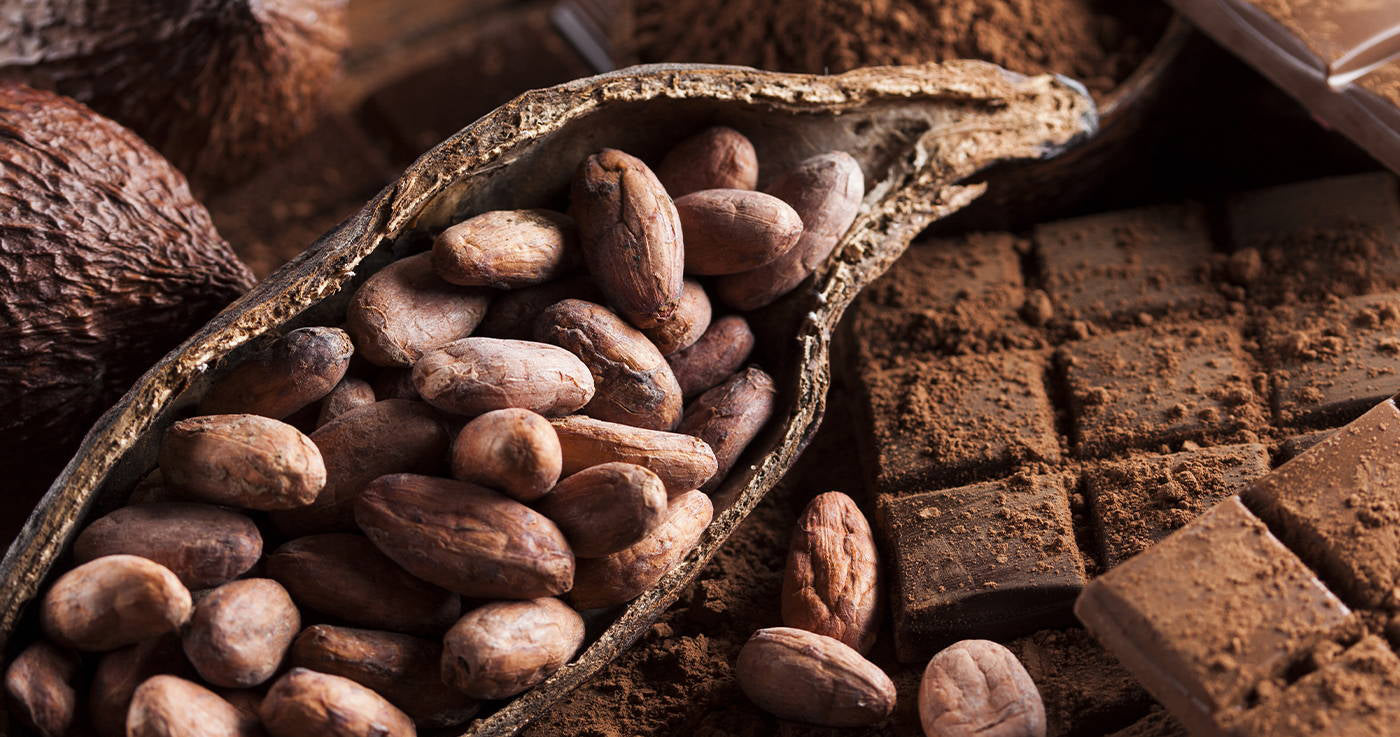
Does Cocoa Powder & Chocolate Contain Antioxidants?
Here again, myth busted. No antioxidants in cocoa powder, no antioxidants in chocolate. So if they aren’t antioxidants, how do cocoa flavanols work?
Here’s the takeaway from the research: cocoa flavanols should be part of your daily routine because they do work to increase your body’s natural pool of nitric oxide—a small but powerful molecule critical to the health of your blood vessels.
Nitric oxide isn’t as commonly known as an antioxidant, but it’s worth a closer look thanks to the vital role it plays in helping our bodies perform at their very best. In fact, nitric oxide is so important that it’s actually prize-winning. No really—keep reading to find out why!
What is Nitric Oxide & What Are the Health Benefits for Your Body?
The discovery of the cardiovascular impact of nitric oxide, a small but powerful molecule critical to the health of your blood vessels, was so groundbreaking that researchers won the 1998 Nobel Prize for discovering it! By supporting the body’s pool of nitric oxide, cocoa flavanols help support healthy blood vessel function. Healthier blood vessels promote healthier blood flow. And healthy blood flow is a critical part of the overall health of the cardiovascular system.
But the benefits of cocoa flavanols and nitric oxide don’t stop there. There’s solid scientific evidence that, in addition to cardiovascular benefits, they can also improve cognitive (brain) function. That’s because nitric oxide promotes healthier blood vessels, supporting the cardiovascular system so it can deliver essential oxygen and nutrients to every organ, muscle and tissue throughout your body—including your brain—keeping all parts of you nourished and performing at their best.
How to Increase Nitric Oxide in Your Body
Drink beetroot juice.
In a move that would delight Dwight Schrute on The Office (beets, bears, Battlestar Galactica anyone?), beets are rich in nitrates, which your body changes into nitric oxide. Some studies have shown that beetroot juice may impact the performance of endurance in athletes. But before you stock up, know that it can take up to two cups of beet juice daily to see positive effects, that cooking beets drains much of their nitrates (so you have to stick with juice), and it might add a tint to your toilet—yikes!
Eat more spinach (and other leafy-green veggies).
Packing in foods that are high in nitrates (like spinach) may increase your levels of nitric oxide. But keep in mind it’s hard to know exactly how many nitrates you’re getting from your spinach salad since studies have shown nitrate content is dependent on the agricultural production system.
Take a supplement.
There are supplements on the market that may increase nitric oxide in your body, but it’s key to have the 411 before you buy: it’s important to understand how the type of supplement you’re buying increases nitric oxide (for example, with cocoa flavanols), how the supplement is measured, and how much you’ll need to consume to get any health benefits.

What Is the Best Nitric Oxide Supplement?
If you’re looking for a way to increase your body’s pool of nitric oxide, it’s scientifically proven that cocoa flavanols will do just that. And while some sources of nitric oxide—like beet juice or spinach—can be sources of nitrates which your body then converts to nitric oxide, cocoa flavanols work within your cells to increase nitric oxide levels in the body.
And while you may have heard you can get cocoa flavanols in some foods like dark chocolate, it pays to be picky about how you boost your intake. Before you buy a supplement, find out:
- What’s the concentration of cocoa flavanols per serving? (tip: science says 450-750 mg/serving is optimal)
- How many calories, carbs and fat grams does the product have? (note: the fewer, the better)
- How were the cocoa beans processed? (tip: traditional processing kills cocoa flavanols)
- How will it taste? (hint: read online reviews.
Some products made with cocoa might claim “health benefits” … but can’t back the claim by guaranteeing the number of cocoa flavanols in their products. The truth is everything from how a cocoa bean is handled during harvest to how cocoa flavanols are measured is critically important, but can vary wildly by product. Knowing the specifics of your supplements pays in (health) dividends.
According toConsumerLab, CocoaVia™ is the Top Rated Flavanol Product for the highest flavanol level and overall quality. So whether you choose cocoa flavanol capsules or drink mix, you can be confident you’re getting high-quality cocoa flavanols that will help your body perform its best!
Add Cocoa Flavanols to Your Daily Routine!
-
CocoaVia™ Cardio Health Capsules
Support heart health with concentrated capsulesRegular price From $45.99 $1.53 per dayRegular price Sale price From $45.99 $1.53 per dayUnit price / per -
CocoaVia™ Cardio Health Powder
Support heart health with every scoopRegular price From $46.99 $1.57 per dayRegular price Sale price From $46.99 $1.57 per dayUnit price / per -
CocoaVia™ Memory & Focus Capsule
Keeps you focused & boosts memoryRegular price From $49.99 $1.67 per dayRegular price Sale price From $49.99 $1.67 per dayUnit price / per -
CocoaVia™ Memory+ Supplement
Improve your memory in just 8 weeksRegular price From $49.99 $1.67 per dayRegular price Sale price From $49.99 $1.67 per dayUnit price / per
